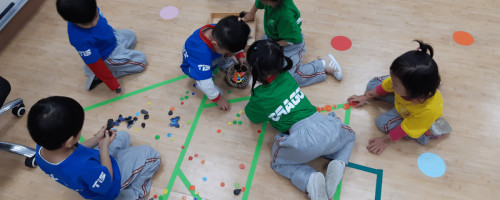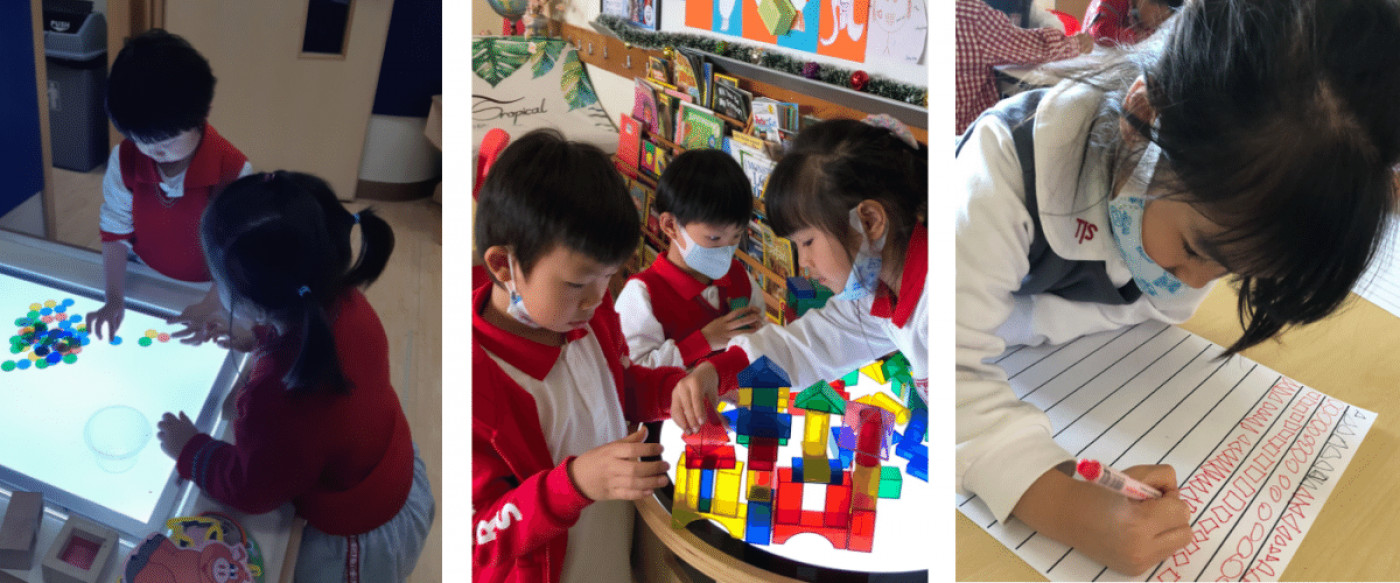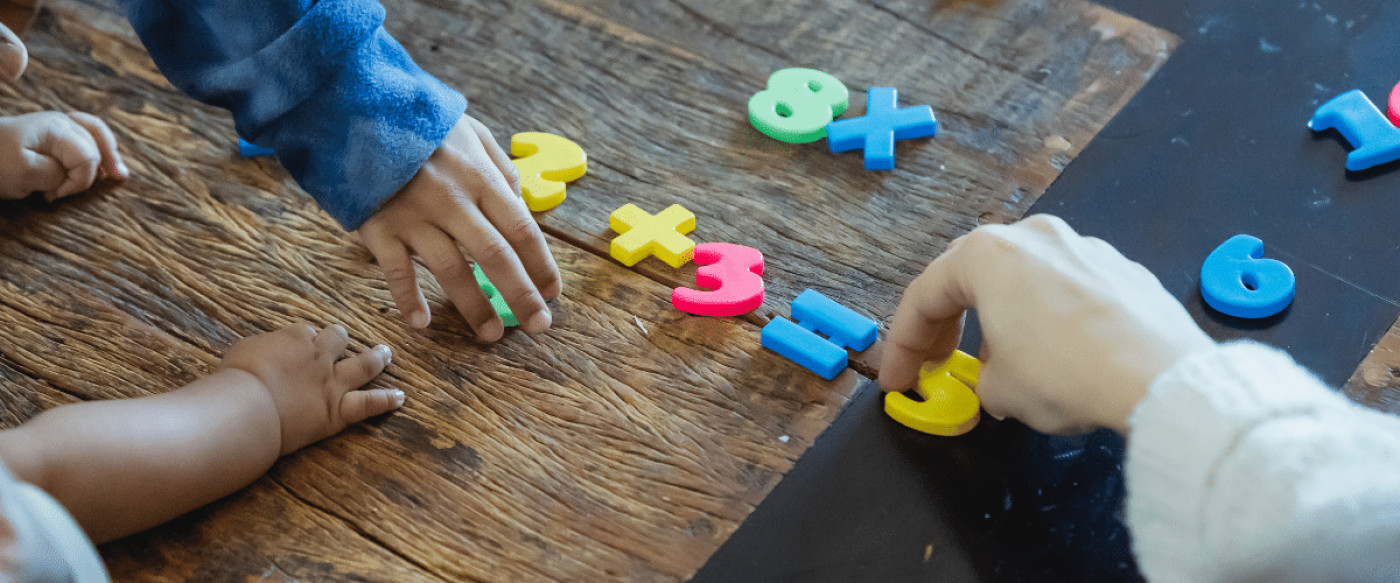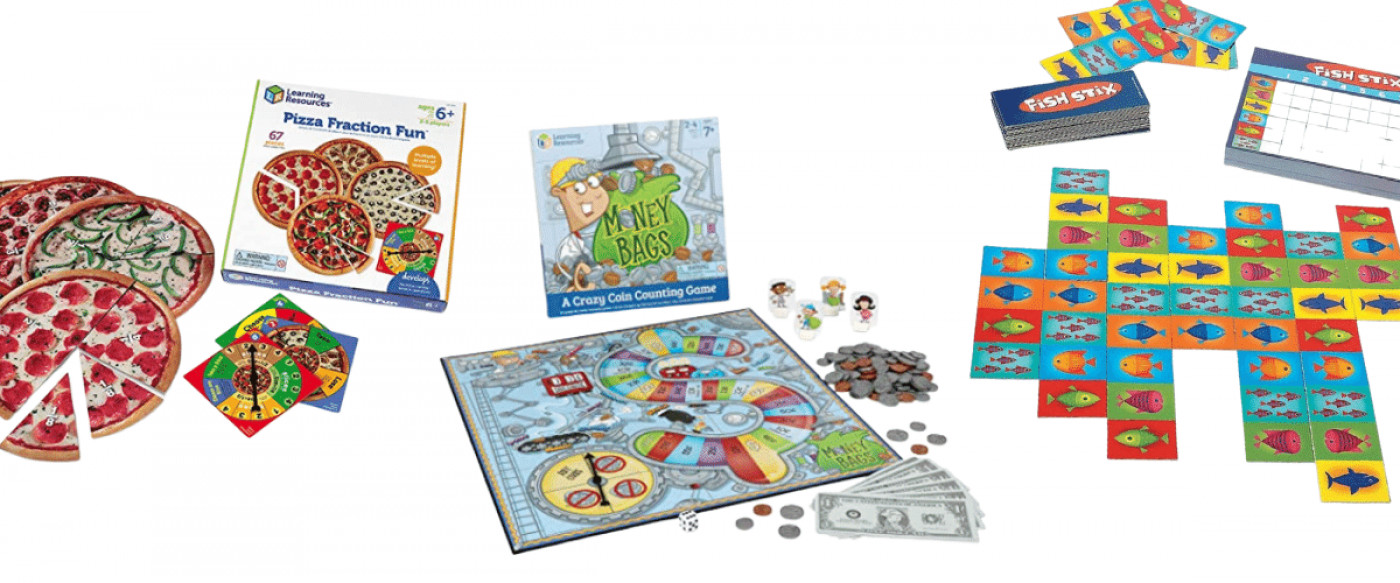
Meaningful Math for Young Learners
Understanding math helps us to recognise patterns in the world. It supports us in making predictions, managing time and money, identifying and solving problems, and explaining our decisions in everyday situations. Math concepts also assist us in using simple and complex technology. By the time children enter a formal school program, they have already started to develop their basic mathematical understanding through environmental exploration, communication with others, logical thinking, symbolic representations and solving problems.
Early math is about playful and meaningful activities. Children develop their knowledge of numbers and numeration, measurement, size, shape and spatial awareness, patterning and algebra, data management and probability. Unlike worksheets and questions with one correct answer, open-ended and playful exploration encourages children to solve problems and gain a deeper understanding. Of course, play does not guarantee math development. Still it offers rich possibilities for adults to help children reflect on and represent their mathematical thinking.

In the early years the focus is not on the rote memorisation of number facts (like how much 3+4 equals or how to recite the 6 times tables). There is no point in memorising facts without understanding the underlying principles. Relying on rote memorisation without deeper comprehension will result in difficulties at higher grade levels when it is necessary to apply concepts in more advanced mathematical situations. Before introducing abstract symbols and concepts it is important for children to first experience and reflect on real-life situations that will assist them to learn functional mathematical thinking skills. If we examine the development of mathematical thinking in the early years, the level of conceptual understanding children have already acquired before they start school is quite remarkable.
By age two, children have learned a great deal about objects in their environment and their characteristics. They recognise colour, weight, size and texture, even if they can’t yet clearly describe these attributes. They can recognise when someone has more of a desired object than they have, and may try to take some of the other person’s items.
They can manipulate 2-D and 3-D shapes and put them into a simple puzzle board or shape sorting container. They can pair like objects and sort objects into groups. Mathematically they are learning about the relationships between people and objects, such as same or different, more or less, sorting and classifying, flipping and sliding.Children need to have these experiences with concrete objects as they learn to think and solve problems.
By age three, children can understand getting one more or taking one away (addition and subtraction). They are starting to repeat number words to count steps or bites of food or other desired items. They can sort objects into small groups, identify which group has more or less and tell what is the same about the items in a group. They can match and name simple shapes and describe object locations using words like “under, behind, beside”.
They can combine shapes to create a picture and use objects to represent something else, and they are beginning to copy simple repeating patterns. They can easily recall routines (which are also patterns) and make note of any changes to common routines. By this age, children are learning to recognise problems and find solutions. This sometimes occurs in game-like situations while they are also practicing the rules of behaviour and communication.
To support mathematical learning, adults can ask open-ended questions, allow children to work at finding their own solutions (or multiple solutions), offer clarification, provide “math language” and extend children’s thinking.
Making Math Fun At Home!
Daily activities that involve math learning may include:
Setting the table, sorting the laundry, making a phone call, pushing the elevator button, shopping for groceries, counting the stairs, recognising number symbols in the environment, measuring ingredients, organising household items, ordering food
Counting everything, counting forwards and backwards, adding items, subtracting items, using your fingers to count, creating groups with the same number of items (multiplication), sorting items into equal groups (division), singing counting songs and reading counting books, practicing skip-counting (by 2’s, 5’s, 10’s)
Exploring how numbers are used inside and outside of your house (e.g. on the microwave, TV, on license plates, etc)
Encouraging your child to explain their thinking and planning out loud. Ask about the problem, what might be a possible solution, what might be another solution, how did they decide, can they draw pictures of their solution?

Playing games like dominoes, dice, cards, board games, puzzles
Measuring items in the house and identifying which ones are bigger, smaller, heavier, lighter, longer, shorter, higher, lower, taller
Measuring and recording a child’s growth on a growth chart or against a door or wall
Guessing how far you can throw a ball or jump from the curb and then throwing it/jumping and measuring the distance (using standard units like meters and non-standard units like number of handspans)
Baking and cooking together
Estimating and checking (number of steps from A to B, how many somethings in the jar, how long it will take to get somewhere, how much change you are going to receive at the store, how much something might cost, how many chocolate chips will we need to fill this container) using words like might, chance, likely, unlikely, certain, always, maybe
Talking about time and daily routines. For example, the number of sleeps until an event, what you did last week or yesterday, what you are planning to do today or tomorrow, counting down days until a special event, lunchtime, bedtime, story time, what always happens after your bath? First I am doing this (X) and then we will do this (X).
Using a stopwatch to time activities like how many jumping jacks can you do in one minute or having a 20-minute bath
Talking about the temperature inside and outside and deciding what you need to wear today
Identifying shapes of household objects like clocks, windows, pictures, food cans and building structures with different shapes
Identifying sizes of household objects like lining up shoes from smallest to largest
Recognising and describing patterns in music, songs, stories, on clothing, pictures, jewellery using words like next, copy, repeat, extend, follow me, what comes next?

Creating patterns using household objects, beads, blocks etc.
Building a structure together using any materials
Creating shapes with straws, toothpicks, legos, string, play dough, cookie dough
Building origami animals
Building a tunnel or playhouse in the bedroom or living room
Describing your child’s actions at the playground using words like high, low, over, under, big, little, more, less
Playing with water and containers in the sink or bathtub
Acting out real-life situations like setting up a store or restaurant
Planning a birthday party or special event
Making enough cupcakes for everyone in the class
Planning how to rearrange your bedroom furniture and then following the plan
Sharing a limited quantity of items with a group of people using words like half, fair, unfair, equal, even, uneven, same, different, more, less
Family members and educators play a critical role in developing children’s everyday math language and understanding as they support children to be curious about mathematics and enjoy learning. Based on typical daily conversations and activities, adults can offer provocations that require children to use mathematical reasoning and problem solving. Alternatively adults can miss these opportunities to inspire a child’s math learning, or can even discourage them from acquiring the necessary skills and knowledge to seek to understand their word in a mathematical way.
Enjoy your math time with your child in a relaxed and supportive manner and help them use math thinking skills and language throughout their day. Families matter for children’s math development.



